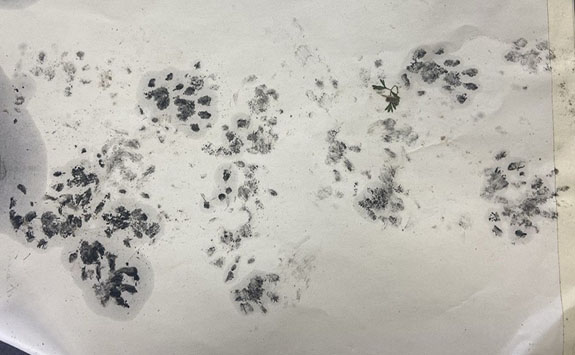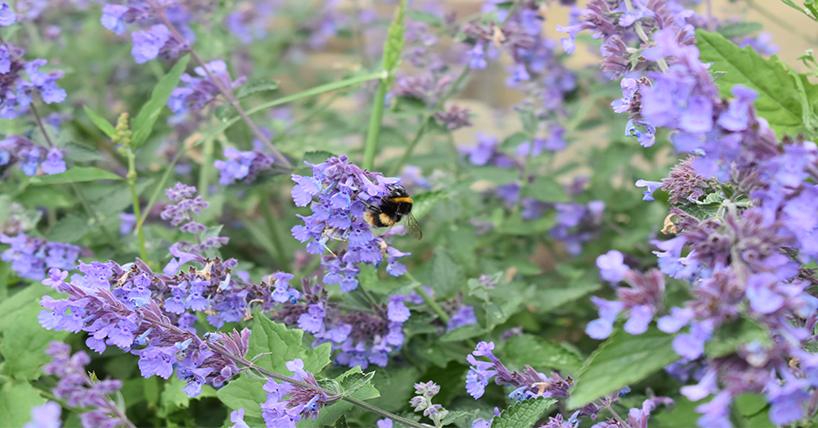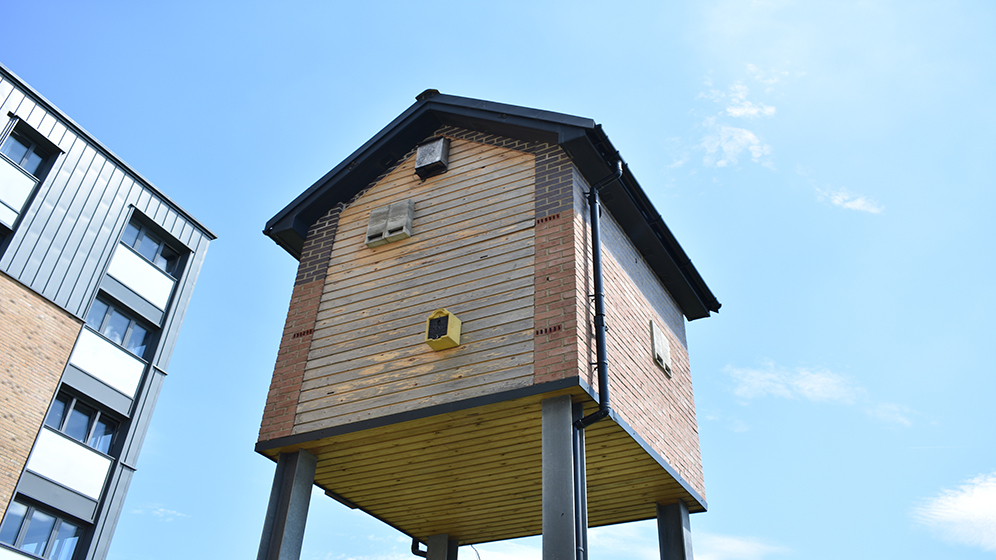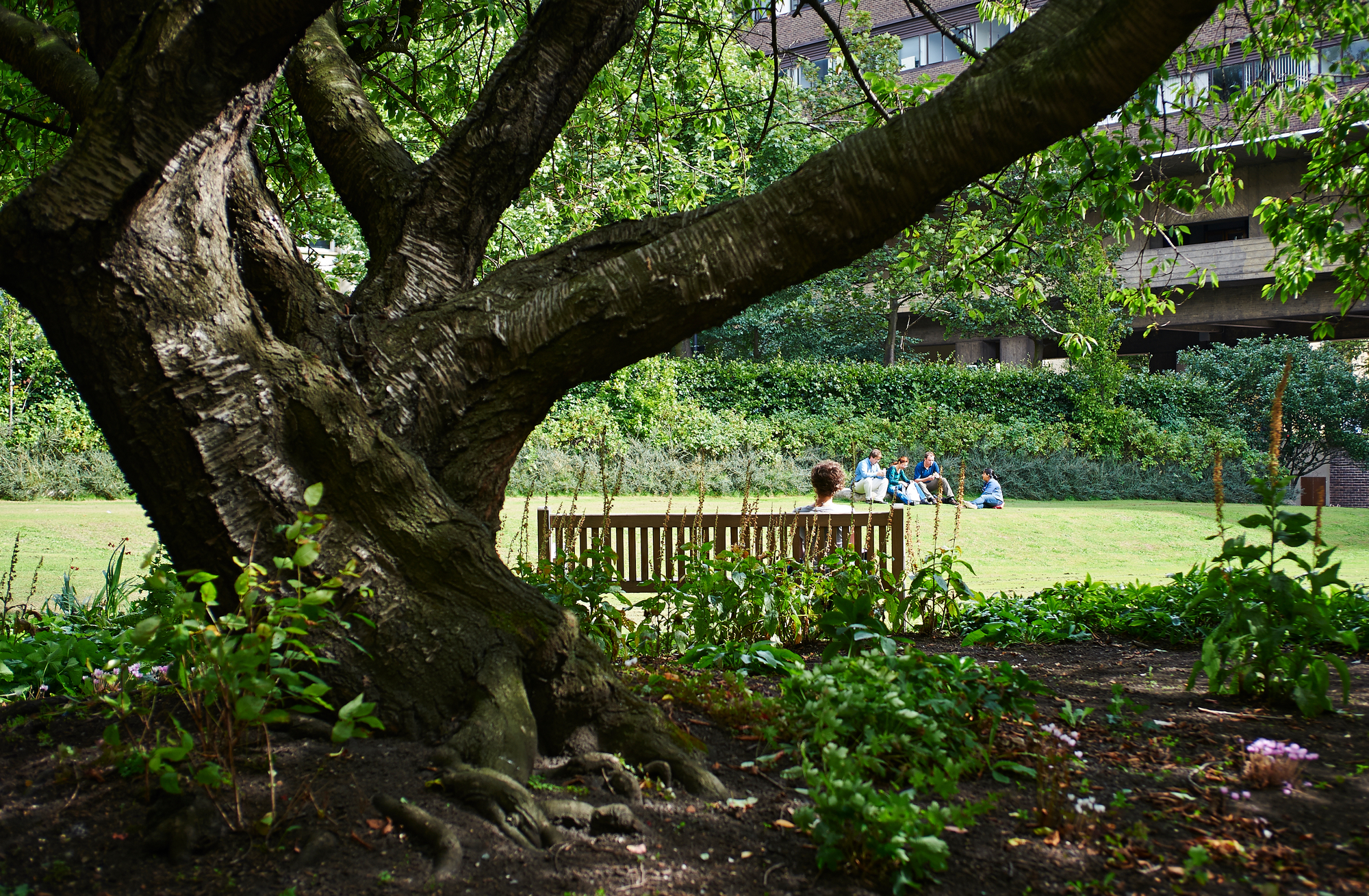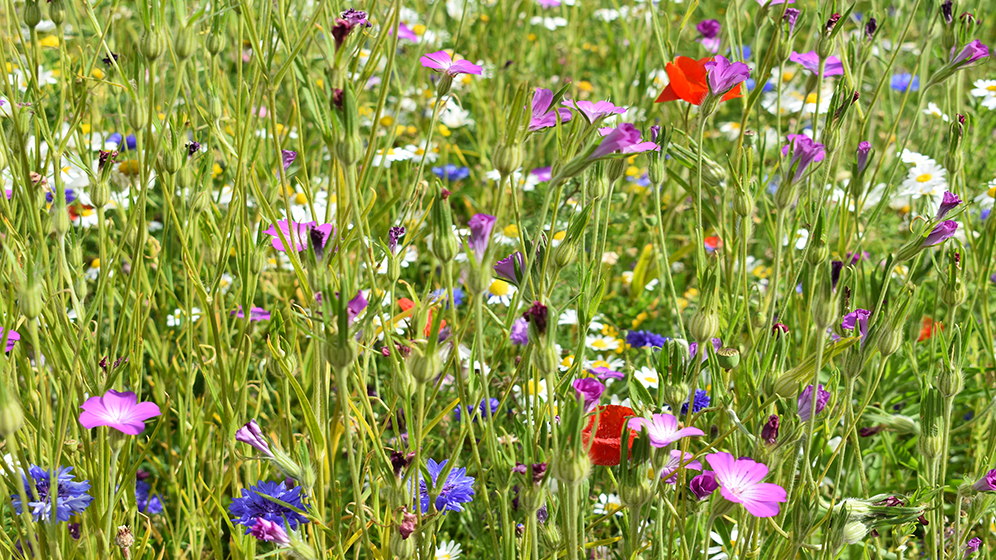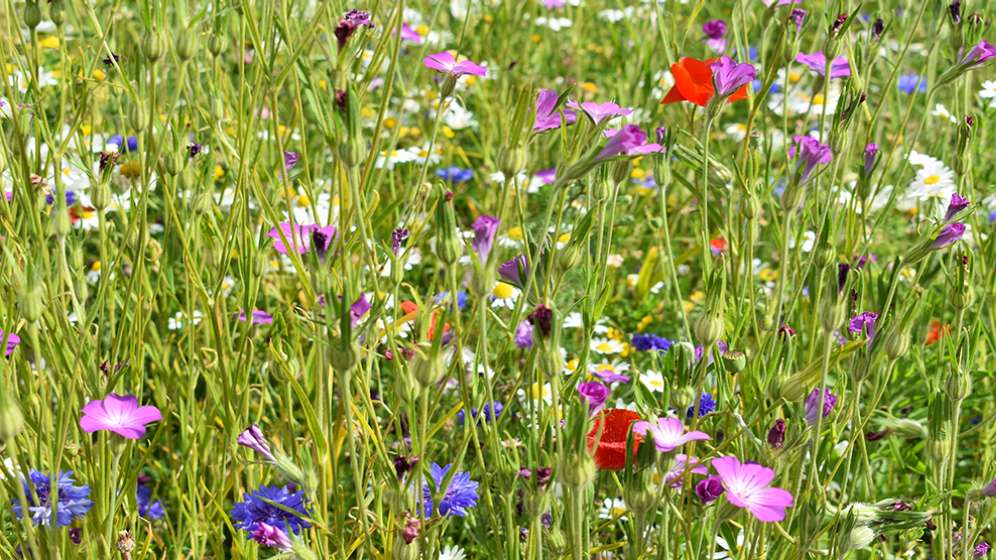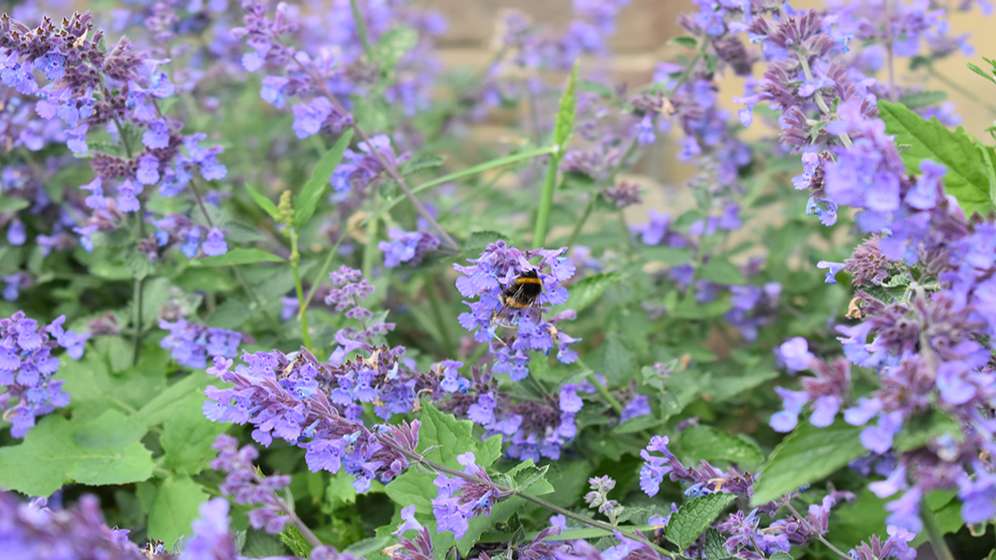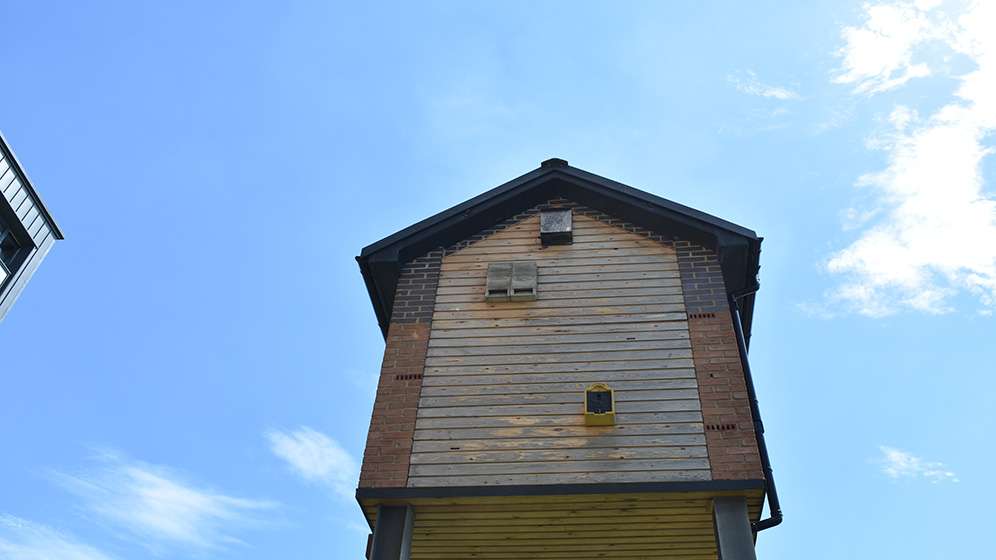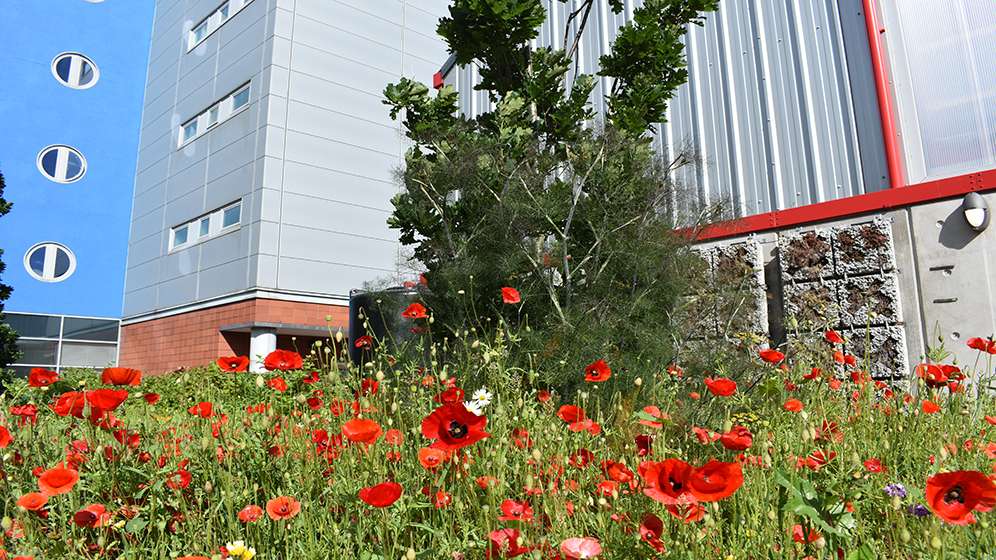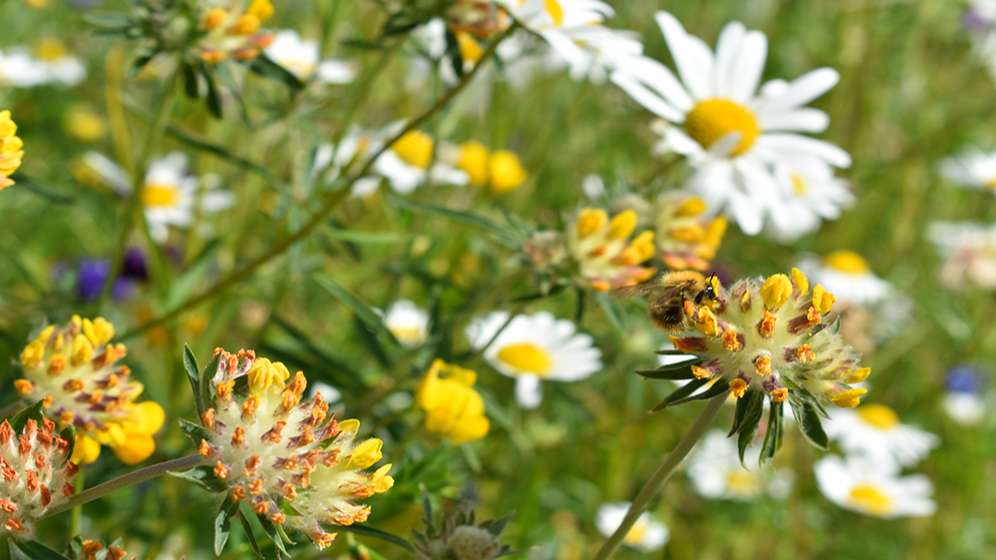Biodiversity
Biodiversity sustains life and is crucial for environmental, social and economic development, both now and in the future.
Biodiversity is all the different kinds of life you’ll find in one area—the variety of animals, plants, fungi, and even microorganisms like bacteria that make up our natural world.
Protecting and Enhancing Biodiversity
As part of our commitment to environmental sustainability, we are dedicated to preserving and enhancing biodiversity. We have several projects and commitments that we are working towards which are detailed on this page.
Nature Positive Pledge
Newcastle University made a Nature Positive Pledge in December 2022. To be a Nature Positive institution, Newcastle University needs to restore the species and ecosystems that have been harmed by the impacts of our university and the activities we conduct.
We also need to enhance our positive impact on nature, the pledge outlines four key steps required for an institution to become Nature Positive which include:
- Assess our baseline
- Set SMART targets
- Act and influence for nature using the Conservation Hierarchy
- Report annually on our progress
We assessed our baseline in Spring/ Summer 2025 by conducting a variety of surveys to establish what habitats and species are currently present across our City campus. We conducted species surveys for bats, birds, hedgehogs and pollinators across the City campus through a variety of survey techniques to establish the presence of any of these species. We also recorded the types of habitats present on campus whilst identifying how these can be enhanced, some of our results are outlined below.
Local partnerships and events
We work alongside a number of local institutions within the North East on biodiversity enhancement by sharing operational best practice and engaging with the local community at events.
Newcastle Biodiversity Group
We are members of Newcastle Biodiversity Group that brings together local institutions that are based in Newcastle to collaborate and share best practice for areas of work related to biodiversity. Members currently include representatives from Newcastle University, Newcastle City Council, the NHS, Northumbria University and the Environmental Records Information Centre - North East (ERIC NE). Through Newcastle Biodiversity Group we collaborate with partners in our local community to enhance biodiversity and identify opportunities to collaborate to maintain ecosystems across our estates.
City Nature Challenge
We participated in the 2025 City Nature Challenge with both ERIC NE and Durham University. The North East project which Newcastle University is located within, placed within the top ten UK regions that participated.
We look forward to participating again in April 2026.
Hibernation Half-Term
A couple of our Sustainability Officers joined the Learning Officers for the Great North Museum: Hancock's Hibernation Half Term event where they spoke to event attendees about how the University is working to protect both bats and hedgehogs on our campus. They showed our recently collected hedgehog footprints and taught attendees how they can set up their own hedgehog footprint tracking tunnel at home.
Operational actions we are taking
We work with a variety of teams in Estates and Facilities, including the Grounds Team to protect and enhance biodiversity on campus.
We have a variety of ecosystems and habitats present on campus, some of which are naturally occurring, some are manmade. The team work to ensure these habitats are protected and enhanced where possible, alongside any species that may be present within them.
Green Flag Award
The University currently holds a Green Flag Award for the Old Quad which is a prestigious award that recognises welcoming, biodiverse and sustainable green spaces, which the Grounds Team work hard to maintain.
The University provides free access to these green spaces on campus.
Find out more
- EAUC Biodiversity guide for colleges and universities (colleagues and students can register for free membership).
- ERIC North East - Environmental Records Information Centre for the North East of England. Working with wildlife recording groups and individuals to collate environmental data used to inform nature conservation.
- Natural History Society of Northumbria - promoting and encouraging the study of natural history, protecting the flora and fauna in the North East of England, and caring for and extending their library and collections at the Great North Museum: Hancock.
- Northumberland Wildlife Trust - the leading charity dedicated to nature conservation and environmental education within Newcastle, North Tyneside and Northumberland.
- Ouseburn Farm - a green oasis in the heart of Newcastle upon Tyne. A community-led project located in the Lower Ouseburn Valley which allows people to get up close to animals, explore the fields, woods and ponds, and stroll around the garden.
- RSPB – one of the largest wildlife conservation organisations in Europe. The RSPB speaks out for birds and wildlife, tackling the problems that threaten our environment.
- The British Hedgehog Preservation Society (BHPS) – a charity dedicated to preserving hedgehogs native to the United Kingdom.
- Newcastle University Bee Society – membership (only available to current students) offers access to beekeeping opportunities on campus, educational workshops, and community events.
- Go Volunteer – The volunteering programme at Newcastle University Students’ Union hosts a range of sustainability focused opportunities from a variety of organisations. Examples include roles focused on urban farming, protecting city parks, and preserving the Northumberland Coast Area of Outstanding Natural Beauty.

